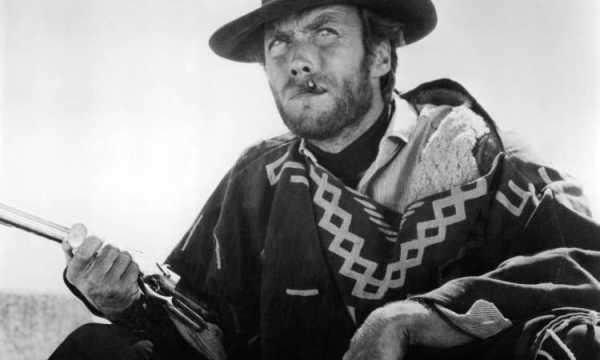The Senate candidate keeps telling puzzling stories about his poultry business.
-
Send any friend a story
As a subscriber, you have “>10 gift articles to give each month. Anyone can read what you share.
Give this article
- Read in app

Herschel Walker with supporters after a speech in Ringgold, Ga., in May.
There’s a biographical story Herschel Walker tells that illustrates why so many questions linger about his Senate run in Georgia.
It goes something like this: The food conglomerate Conagra invited him to pitch recipes for breaded chicken and wanted to know his company’s name.
Walker, a former Heisman Trophy winner, was looking to leverage his fame to make money after retiring from the National Football League after the 1997 season.
“I didn’t have a company, but I stayed in a Renaissance Hotel a couple of days before, so I named my company Renaissance Man Food Services, and they put it in the contract,” Walker said at a campaign event in Georgia on May 20, one of several times he has told versions of this story in public.
But Walker had already been a partner in a business venture called Renaissance Man Inc. — a failed effort begun five years earlier to sell health drinks in Walmart stores. That venture grew out of a friendship with the owner of a company with a remarkably similar name: Renaissance Manufacturing, a family-run textile business in South Carolina that traces its lineage back five generations.
Asked to explain the discrepancy, Scott Paradise, Walker’s campaign manager, responded, “What an unbelievably stupid story.”
‘A wacky maze of contradictions’
It might not seem like it matters much. Who cares about the origins of an ex-football star’s poultry business?
Walker, of course, is now the Republican nominee for Senate in Georgia, hoping to oust Senator Raphael Warnock, the incumbent Democrat, and become one of the most powerful politicians in the United States. Walker has made his record as an entrepreneur central to his biographical narrative, describing himself as the “successful owner” of as many as a dozen businesses.
But Walker’s origin story about his food-services company fits a pattern of exaggerations, half-truths and outright falsehoods that dates back to at least the 1990s.
A 1996 profile of Walker in Sports Illustrated by the columnist Skip Bayless called his statements “a wacky maze of contradictions” and portrayed Walker as setting himself up to fall short of the “superhuman” expectations he publicly set for himself.
“Beginning during his college days at Georgia,” Bayless wrote, “he turned himself into almost a cartoon superhero: a world-class sprinter who had a black belt, performed in a ballet, made the Olympic bobsled team, chased criminals and even scored touchdowns in his spare time.”
Many aspects of Walker’s biography, however, have collapsed under closer scrutiny. On Monday, The Atlanta Journal-Constitution reported that Walker has repeatedly claimed he “worked in law enforcement,” when in fact he hasn’t.
Walker has even lied about graduating from college, which he did not do, then lied about whether he lied about graduating from college, as CNN found he did. He also has layered on further embellishment at times, claiming that he graduated “in the top 1 percent of my graduating class,” which he did not.
ImageHerschel Walker signing a Georgia Bulldogs poster at a campaign event in April.Credit…Nicole Craine for The New York Times
A game of corporate chicken
Walker’s longtime business partner is George Evans Mappin, the heir to a family business that makes and sells textiles to hotel chains, such as Hilton.
The way Mappin tells the story on his company website, the two men met when Walker was still playing football at the University of Georgia. That would have been in the early 1980s.
“George realized that Herschel thought outside of the box and was a hard worker; he then decided Herschel would be a great asset to our growing business,” the website reads.
Mappin did not respond to a request for comment, but corporate records cast doubt on Walker’s story about how he came up with the name Renaissance Man Food Services.
In 1997, Walker filed paperwork establishing a different company, Renaissance Man Inc., which sold an aloe-based health beverage, Aloe-Lu-Ya.
At the time, Walker listed the mailing address for his nascent business at the same address in Greer, S.C., as Renaissance Manufacturing, Mappin’s family textile business. The drink sold poorly, according to federal filings reviewed by The Atlanta Journal-Constitution.
Walker did not start Renaissance Man Food Services — a different entity that sells breaded chicken, among other products — until 2002, he said in a 2019 court deposition.
It sure seems like an odd coincidence that Walker would have named his company after a hotel he stayed in rather than the family business of a close friend he had known for more than a decade and who had been his business partner in another similarly named venture.
The origin of the name isn’t the only inexplicable statement Walker has made about his poultry company.
In an interview with Fox Business in 2018, Walker said that Renaissance Man Food Services was “the largest minority-owned chicken business in the United States,” which was not true.
He also said it was “essentially a mini Tyson Foods” with “over 600 employees.” Two years later, in an interview with Scott Murray, a sports broadcaster in Dallas, Walker said the company had “about 800 employees.”
But in April 2020, Renaissance Man Food Services listed just eight employees on a loan application for the Paycheck Protection Program, the coronavirus-era relief program.
Renaissance Man Food Services did not own the chicken-processing plants Walker has claimed it owned, either. As he told the court in a deposition for a wrongful termination suit that was previously examined by The Associated Press, “I don’t mean to speak of ‘own’ in a technical sense.”
Asked for the same deposition if he had come up with the name of his company on his own, Walker responded, “Yes, I’m the Renaissance Man.” But when pressed about the name’s origins, he said, “I have no clue where it came from.”
Walker has openly described struggling with his mental health, including in “Breaking Free: My Life With Dissociative Identity Disorder,” his 2008 autobiography.
But in this instance, candor nearly damaged his business. In a deposition as part of the same litigation, Kristin Caffey, a former senior official at Sysco, which exclusively sells Famous 34, Walker’s food line, revealed that the food-services giant nearly canceled the arrangement.
“When he released his book that we did not know was coming out, in reference to multiple personality disorder, it was of concern to the corporation in regards to whether or not we could continue the relationship,” Caffey said. “It was a P.R. perspective nightmare.”
Image
What to read
-
Maine, Nevada, North Dakota and South Carolina are holding primary elections today, and there’s a special election in Texas. Follow our live updates and track the incoming results tonight.
-
It’s a deep worry for Democrats ahead of the midterms: Why, exactly, are gas prices so high? Ella Koeze and Clifford Krauss explain.
-
“Rudolph W. Giuliani seemed drunk, and he was making a beeline for the president.” Michael Shear and Maggie Haberman reconstruct the former New York mayor’s role on election night 2020.
Image
— Blake
Is there anything you think we’re missing? Anything you want to see more of? We’d love to hear from you. Email us at onpolitics@nytimes.com.
Source: nytimes.com



